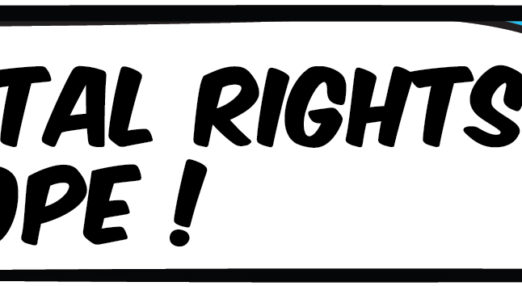CJEU
Filter by...
-

In Germany, Data Retention refuses to die
The debate is intensifying in Germany on whether telecommunications data retention should be reintroduced. At the centre of the controversy is Sigmar Gabriel, the leader of the Social Democrats (SPD, the smaller party in Germany’s “grand coalition” government since 2013), and consequently a government minister for the economy and chancellor Angela Merkel’s deputy. Gabriel’s role […]
Read more
-

Austrian Internet users to pay for intransparent web blocking scheme
On 27 March 2014, the European Court of Justice (CJEU) ruled that national jurisdiction can order an injunction against an Internet Service Provider (ISP) requiring it to restrict its customers from accessing a website that is placing protected content online without the consent of the rights holder. Since last year, Austrian ISPs have thus started […]
Read more
-

Data retention in Kosovo and Switzerland – legalising illegal laws
Less than a year ago, many thought data retention in Europe would finally be faced with incontrovertible evidence that it is not effective or proportionate. Now, sensing an opportunity to take advantage of a more favourable public relations landscape, some politicians seem to have the intention to bring EU data retention back again. Data retention […]
Read more
-

Legal Service Opinion on CJEU Data Retention ruling
The European Parliament (EP) legal services last week presented an opinion on the Court of Justice of the EU’s (CJEU) ruling on the Data Retention Directive (DRD) and its implications. The opinion, after restating the principles that are essential to permit any interference on fundamental rights (proportionality, justification and necessity), answered specific questions raised by […]
Read more
-

Danish government plans to re-introduce session logging
The Danish response to the ruling of the Court of Justice of the European Union (CJEU) on the Data Retention Directive was fairly limited. On 2 June 2014, the Ministry of Justice produced a legal analysis saying that there was no reason to believe that the Danish data retention law was in conflict with the […]
Read more
-

EU-Canada agreement on PNR referred to the CJEU: What’s next?
On 25 November the European Parliament voted, by 383 votes to 271, in favour of a resolution to refer the EU-Canada agreement on Passenger Name Records (PNR) to the European Court of Justice (CJEU). The CJEU will now decide on the compliance of the agreement with EU law, in particular the Charter of Fundamental Rights. […]
Read more
-

Dutch government: Let’s keep data retention mostly unchanged
On 18 November, the Dutch government finally issued its response to the Court of Justice of the European Union (CJEU) ruling in April 2014 that invalidated the data retention directive 2006/24/EC. Despite all the debate about the legality of data retention practices, the government wants to retain its current data retention legislation. The Ministry of […]
Read more
-

Danish court orders a UK company to block Danish IP addresses
In Denmark, and in most other EU member states, furniture design is protected by copyright for 70 years from the death of the designer. However, a few member states have shorter protections for furniture. In the United Kingdom, for example, Article 52 of the Copyright Designs and Patents Act of 1988 limited the protection for […]
Read more
-

Denmark plans to use PNR data for increased Schengen border control
In Denmark, there is currently a public consultation for a new draft law which aims at improving the border checks at Denmark’s Schengen borders. Formally, the Schengen Border Code has abolished border checks at EU’s internal borders, but, under Article 21, member states are still allowed to carry out identity checks in the border territory, […]
Read more
-

PNR: Losing rights and paying for it
Passenger Name Records (PNR) are files containing information provided by the passengers and collected by air carriers for commercial purposes. PNR can contain information ranging from itineraries, to credit card numbers and meal preferences. The fact that this type of data is obtained by flight companies is not new; similar data may be obtained internally […]
Read more
-

CJEU: Embedding not a copyright infringement
On 21 October 2014 the Court of Justice of the European Union (CJEU) ruled that embedding copyrighted videos is not a violation of copyright, even when the source video is uploaded without the permission from the rightsholder. The case, dealing with a dispute between a water filtering company BestWater International and two independent commercial agents […]
Read more
-

Web-blocking in Austria – law with the law taken out
Following the European Court of Justice ruling on the UPC Telekabel v Constantin in April 2014, Austrian internet access providers have started “blocking” several websites. In the case in question, the Court established that an injunction may be imposed on an internet access provider (ISP) “prohibiting an internet service provider from allowing” its customers access […]
Read more
